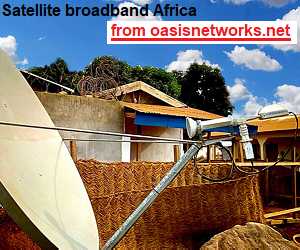| Home Login Register |
| Satellite Internet forum › TooWay and KA-SAT satellite › Re: Tooway KA-SAT installation manual. |
|
Pages: 1
|
Re: Tooway KA-SAT installation manual.(Read 14570 times) |
|
Kellogs
Member
★★ Offline Posts: 4 |
May 3rd, 2012 at 1:02pm
|
| Back to top |
« Last Edit: May 3rd, 2012 at 2:13pm by Kellogs »
IP Logged
|
|
europe-satellite.com
Senior Member
★★★ Offline Posts: 541 London UK |
Reply #1 - May 3rd, 2012 at 2:34pm
|
| Back to top |
« Last Edit: Apr 13th, 2021 at 3:42pm by Admin1 »
IP Logged
|
|
dazzer1974
Member
★★ Offline Posts: 13 |
Reply #2 - May 3rd, 2012 at 2:44pm
|
| Back to top |
IP Logged
|
|
Kellogs
Member
★★ Offline Posts: 4 |
Reply #3 - May 3rd, 2012 at 4:23pm
|
| Back to top |
« Last Edit: Apr 13th, 2021 at 3:42pm by Admin1 »
IP Logged
|
|
MrMuckyPaws
Senior Member
★★★ Offline Posts: 56 UK |
Reply #4 - May 3rd, 2012 at 4:56pm
|
| Back to top |
IP Logged
|
|
dazzer1974
Member
★★ Offline Posts: 13 |
Reply #5 - May 3rd, 2012 at 5:02pm
|
| Back to top |
« Last Edit: Apr 13th, 2021 at 3:43pm by Admin1 »
IP Logged
|
|
europe-satellite.com
Senior Member
★★★ Offline Posts: 541 London UK |
Reply #6 - May 3rd, 2012 at 5:48pm
|
| Back to top |
« Last Edit: Apr 13th, 2021 at 4:10pm by Admin1 »
IP Logged
|
|
martyn94
Member
★★ Offline Posts: 6 |
Reply #7 - May 9th, 2012 at 7:04pm
|
| Back to top |
IP Logged
|
|
Pages: 1
|
Email me: eric@satsig.net
Powered by YaBB 2.5.2!
YaBB Forum Software © 2000-. All Rights Reserved.
Disclaimer, Terms of Use and Privacy Forum User Agreement Forum rules Cookie policy.



